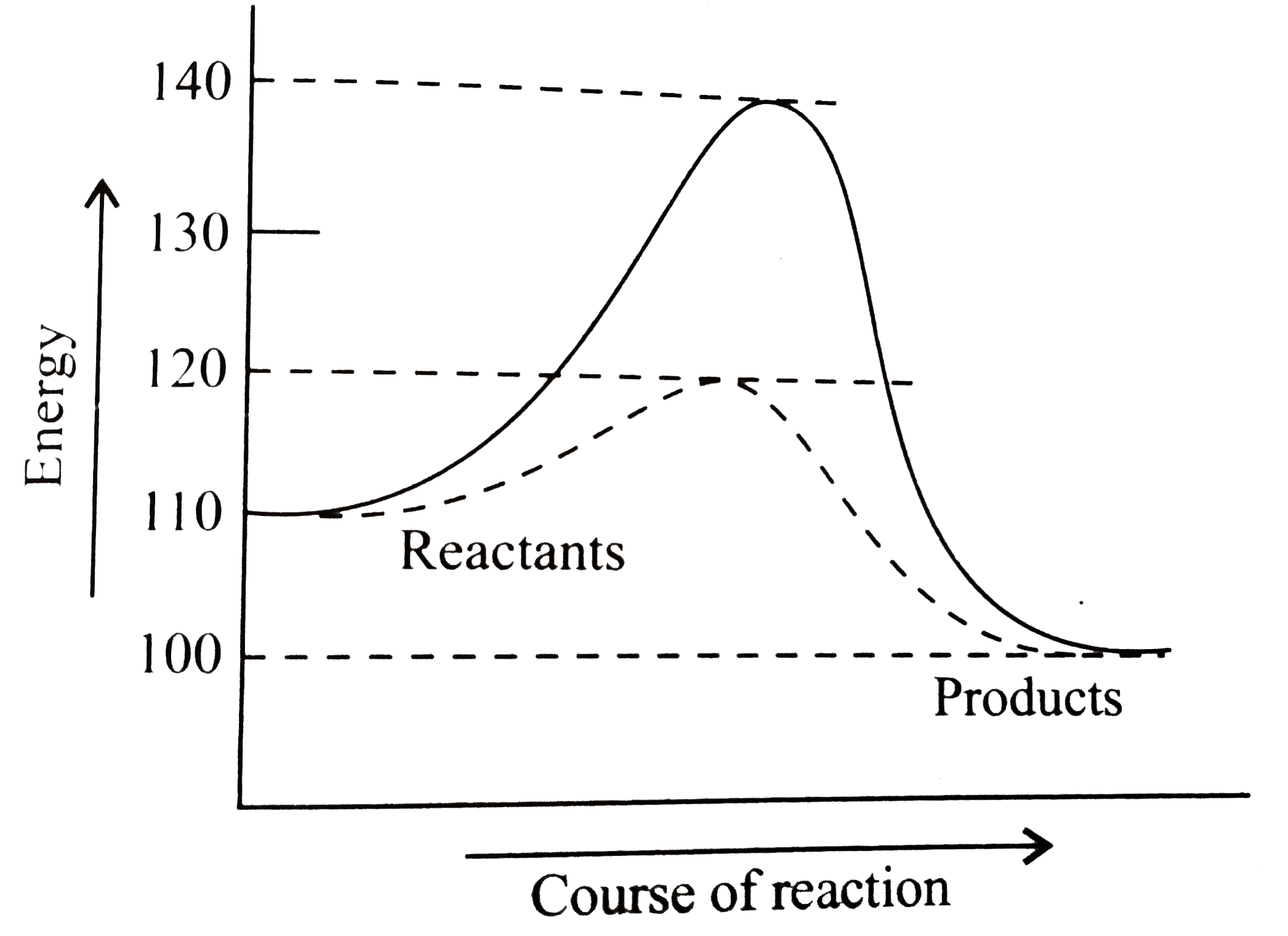In the presence of a catalyst, the heat evolved or absorbed during the reaction:
increases
decreases
remains unchanged
may increase or decrease
The correct Answer is:C
To solve the question regarding the effect of a catalyst on the heat evolved or absorbed during a reaction, we can follow these steps:
1. Understand the Role of a Catalyst: A catalyst is a substance that increases the rate of a chemical reaction without being consumed in the process. It does this by providing an alternative pathway for the reaction with a lower activation energy.
2. Activation Energy: The activation energy (Ea) is the minimum energy required for a reaction to occur. A catalyst lowers this activation energy for both the forward and reverse reactions.
3. Effect on Enthalpy: The change in enthalpy (ΔH) of a reaction is a measure of the heat absorbed or released during the reaction. Importantly, the presence of a catalyst does not change the overall enthalpy change of the reaction. This is because it affects both the forward and reverse reactions equally.
4. Conclusion: Since the catalyst does not alter the enthalpy change (ΔH) of the reaction, the amount of heat evolved or absorbed during the reaction remains unchanged.
5. Final Answer: In the presence of a catalyst, the heat evolved or absorbed during the reaction remains unchanged.
Topper's Solved these Questions
- CHEMICAL KINETICSBOOK - NCERT FINGERTPS ENGLISHCHAPTER - CHEMICAL KINETICSEXERCISE - ASSERTION & REASON
15 Videos
- CHEMICAL KINETICSBOOK - NCERT FINGERTPS ENGLISHCHAPTER - CHEMICAL KINETICSEXERCISE - Rate Of A Chemical Reaction
17 Videos
- CHEMICAL KINETICSBOOK - NCERT FINGERTPS ENGLISHCHAPTER - CHEMICAL KINETICSEXERCISE - Higher Order Thinking Skills
9 Videos
- BIOMOLECULESBOOK - NCERT FINGERTPS ENGLISHCHAPTER - BIOMOLECULESEXERCISE - Assertion And Reason
15 Videos
- CHEMISTRY IN EVERYDAY LIFE BOOK - NCERT FINGERTPS ENGLISHCHAPTER - CHEMISTRY IN EVERYDAY LIFE EXERCISE - NCERT Exemplar
15 Videos
Similar Questions
Why is heat evolved or absorbed in a chemical reaction ?
View SolutionIn the presence of a catalyst, the rate of a reaction grows to the extent of 105 times at 298K. Hence, the catalyst must have lowered Ea by
View SolutionHow do temperature and the presence of a catalyst bring about an increase in the rate of a reaction ?
View SolutionAssertion: A catalyst increases the rate of a reaction.
Reason: In presence of a catalyst, the activation energy of the reaction decreases.
View SolutionIf heat is evolved during a reaction, it is ____
View SolutionRefer picture given below.
(a) Calculate ΔH for the reaction and the energy of activation for the forward reaction as well as backward reaction.
(b) The dotted curve is in the presence of a catalyst. What is the energy of activation for the two reactions in the presence of catalyst?
( c) Will the catalyst change the extent of reaction?

View SolutionWhen o-hydroxybenzaldehyde is heated with ethanoic anhydride in the presence of sodium ethanoate, compound formed during the reaction is?
View SolutionAssertion (A) The enthalpy of reaction remains constant in the presence of a catalyst.
Reason (R) A catalyst participating in the reaction froms different activated complex and lowers down the activation energy but the difference in energy of reactant and product remains the same.
View SolutionAromatic aldehydes in the presence of cyanide ion as catalyst, are converted to acyloins. This reaction is called
View SolutionThe activation energy of a first order reaction at 300K is 60 kJmol−1. In the presence of a catalyst, the activation energy gets lowered to 50kJmol−1 at 300K. How many times the reaction rate change in the presence of a catalyst at the same temperature ?
View Solution